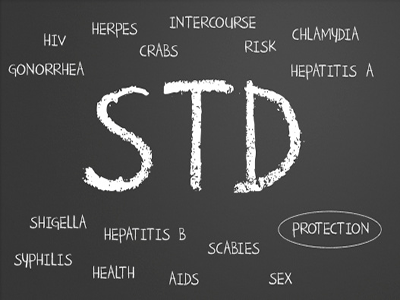
• Chlamydia, gonorrhoea, syphilis, trichomoniasis top list
• Blamed for rising cases of cancers, infertility, HIV
NEW global estimates on Sexually Transmitted Infections (STIs), published in the journal PLOS ONE yesterday, show that an estimated 357 million new infections occur every year with chlamydia, gonorrhoea, syphilis and trichomoniasis topping the list.
According to the report also published in the World Health Organisation (WHO) bulletin, STIs have a profound impact on sexual and reproductive health worldwide, and continue to cause a major burden of disease.
Taken together with previous estimates of herpes simplex virus and human papillomavirus (HPV) infections, other important STIs, the data suggest that more than one million sexually transmitted infections are acquired every day. A large proportion of new STIs occur amongst adolescents and young adults who may not be aware that they are infected – which can have a negative impact upon their future sexual and reproductive health.
According to the study, STIs can have serious consequences not only on physical health, but also on the psychological and social well-being of those infected. If left untreated, both chlamydia and gonorrhoea can lead to pelvic inflammatory disease, which can cause serious damage to women’s reproductive organs, and can in turn lead to infertility, as well as adverse pregnancy outcomes such as ectopic pregnancies.
The report noted that several STIs can also be transmitted from mother to child during pregnancy and childbirth and that syphilis in pregnancy leads to approximately 305,000 fetal and neonatal deaths every year and leaves 215,000 infants at increased risk of dying from prematurity, low-birth-weight or congenital disease.
According to the report, HPV infection causes over 500,000 cases of cervical cancer and over 250,000 cervical cancer deaths each year.
Infection with STIs can also increase the risk of acquiring infection with HIV. People who are living with HIV are also more likely to transmit the virus to a partner if they are also infected with another STI.
The report also noted that drug resistance, especially for gonorrhoea, is a major threat to reducing the impact of STIs worldwide. Data suggests that infections with antibiotic-resistant strains of gonorrhoea are becoming increasingly common. This is a major public health concern, particularly for the prevention of infertility in women.
To address the situation, the study called for the promotion of healthier sexual behaviours, including increasing condom use and sexual health education for adolescents, is critical for STI prevention. It further noted: “Improving access to testing and treatment is also a crucial part of the response to STIs, for example, ensuring all pregnant women are tested and treated for syphilis. However, much more needs to be done – particularly in areas where people do not have access to testing, treatment and care services.
“A safe and effective vaccine against HPV can prevent this infection and its devastating consequences.



